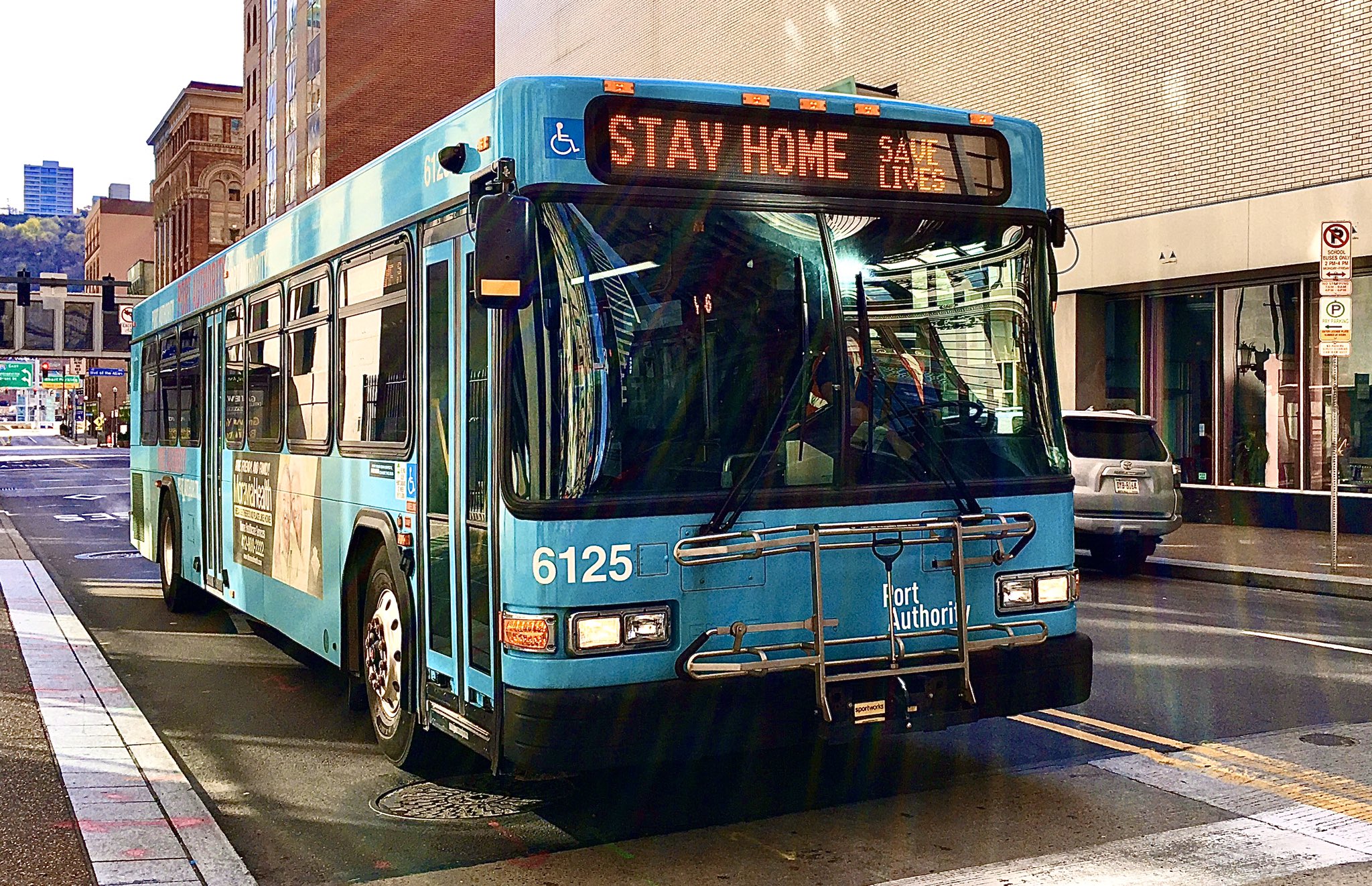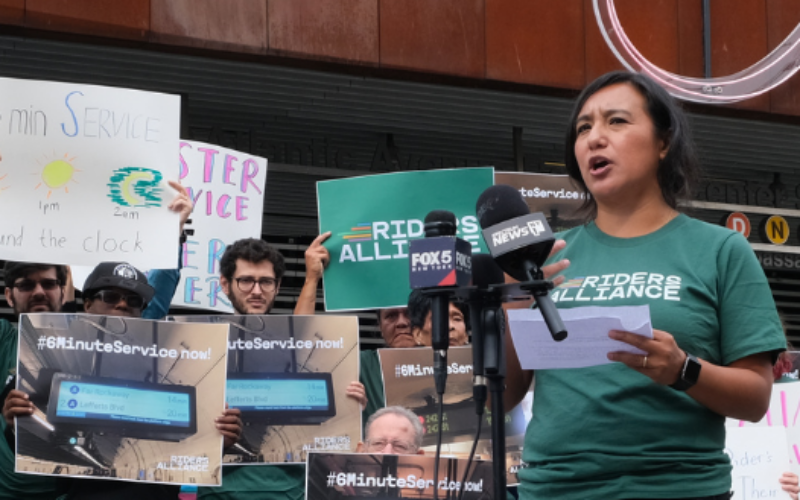
Since the COVID-19 crisis began, Pittsburgh’s transit agency, the Port Authority of Allegheny County, has responded with remarkably quick adaptations. Transit agencies aren’t typically known for being flexible, but thanks to strong communication between management and labor, the Port Authority has developed creative methods to protect bus operators while making service adjustments that reflect the needs of riders who continue to rely on transit.
Like many agencies, the Port Authority is struggling to procure protective equipment for workers. “We’ve been told that N95 masks are on backorder until June,” says Port Authority CEO Katharine Kelleman. “So we started asking, ‘Well, what else can we do?’”
On buses, the Port Authority has implemented rear door boarding, suspended fare collection, and created physical barriers to protect workers. The agency has also paid special attention to conditions at bus depots, making every attempt to limit contact between transit workers.
In addition to dramatically increasing cleaning and disinfecting in depots, managers taped down grids to demonstrate just how far away six feet really is, and moved break tables further apart. At several depots, the agency has put up sneeze guards at the windows where operators receive assignments, and is exploring further ways to limit touchpoints, including using FaceTime for signing in and out of shifts, and allowing workers to eat lunch in their cars or on buses.
Kelleman and other agency executives have worked closely with the three unions that represent Port Authority workers – ATU, IBEW, and IUPA – since the crisis began. This has enabled management to get messages out quickly to staff. “Our unions have been an invaluable partner in making sure that we have really good communications channels with our employees,” says Kelleman.
These relationships helped the Port Authority implement schedule adjustments and other adaptations on the fly. For example, the agency now allows new employees with limited sick leave to access administrative leave if they are diagnosed with COVID19. “One of the things we made sure we really hit was, if your doctor sends you to quarantine, or if you get a test, give us that letter, and we’ll run it as administrative leave,” says Kelleman. “You’re not going to have to use your sick leave for that.”
The agency is also looking into staggering shifts for its maintenance workers, and having fewer workers come in overall. Kelleman recognizes the trade-offs inherent in operating with a smaller active workforce. “We’re trying to minimize interactions between our staff while at the same time having enough service out there that if you’re on the bus, you can sit far enough away from someone that you feel safe.”
Ridership in Pittsburgh is down by 80%, which prompted the Port Authority to reduce overall service levels by 25% on March 23. Crucially, the agency did not just switch to a standard weekend or holiday schedule. Instead, schedulers put a lot of thought into how to customize service delivery to the specific conditions imposed by COVID-19. They ultimately decided to modify the weekday schedule with reductions in frequency targeted at specific routes and times of day.
“The nice part about running a modified schedule was that we didn’t delete any service, so every single pattern was still covered in some way, shape, or form,” says Kelleman. “You might be used to us coming every 15 minutes in rush hour, and now it’s coming every half hour.”
The Port Authority made the biggest reductions to peak hour service, because rush hour commuting had fallen much more than other types of trips, all but eliminating the need for typical peak hour frequencies. The agency also preserved frequency on routes that serve hospitals and the Pittsburgh neighborhoods where residents rely on transit the most. According to Kelleman, making these precise schedule changes required a great deal of calculation, but was essential to preserving mobility for essential workers and seniors.
Since the service changes were implemented, riders have raised concerns about crowding on busy routes. As of April 13, Port Authority will be limiting the number of people allowed on each bus, and plugging gaps in service with buses on standby. “We are staging vehicles throughout the area to make sure that if an operator calls up and says, ‘Hey, my bus looks full,’ they can go to drop off only and we will have another bus to drop in there,” says Kelleman.
Throughout the crisis, Kelleman has gone to garages to talk to staff and learn about their challenges. Key to strong leadership, she says, is recognizing that all jobs at an agency are critical and they’re no less difficult or involved or valued than any other job in the agency. “If your management team starts off with that perspective – knowing who’s at work, and what are their challenges, and what are they facing – then it’s a lot easier to all be moving in the same direction.”
 New TransitCenter Report: To Solve Workforce Challenges Once and For All, Transit Agencies Must Put People First
New TransitCenter Report: To Solve Workforce Challenges Once and For All, Transit Agencies Must Put People First
TransitCenter’s new report, “People First” examines the current challenges facing public sector human resources that limit hiring and retention, and outlines potential solutions to rethink this critical agency function.
Read More Built to Win: Riders Alliance Campaign Secures Funding for More Frequent Subway Service
Built to Win: Riders Alliance Campaign Secures Funding for More Frequent Subway Service
Thanks to Riders' Alliance successful #6MinuteService campaign, New York City subway riders will enjoy more frequent service on nights and weekends, starting this summer. In this post, we chronicle the group's winning strategies and tactics.
Read More